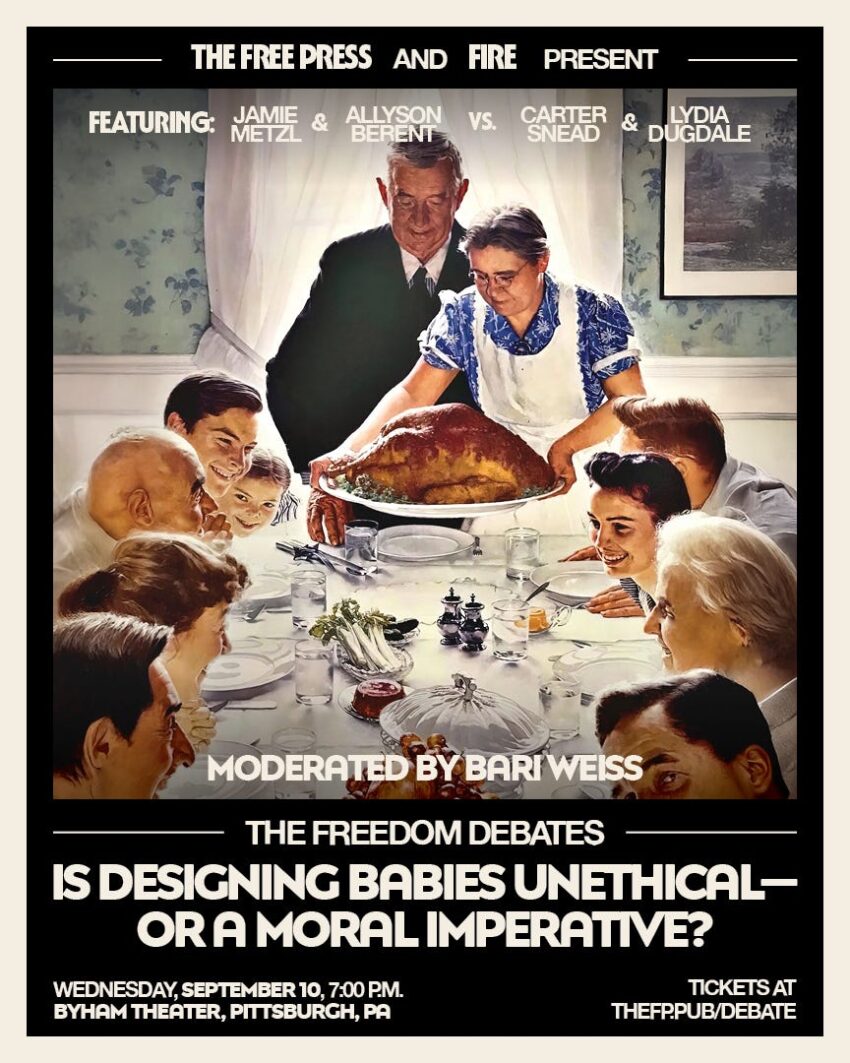In May of this year, it was announced that doctors at Children’s Hospital of Philadelphia used CRISPR—the revolutionary gene-editing technology—to save the life of a baby boy born with a rare, often fatal genetic disorder. It was the first time a personalized CRISPR therapy had ever been administered to a human being.
A few years ago, a Chinese biophysicist was released from prison for using the very same technology to alter the genomes of two embryos, producing twin girls with resistance to HIV. That experiment was condemned around the world. And not because it failed—but because it worked.
We are entering an era in which humans will wield unprecedented power over our own biology. Correcting the mutations that cause diseases like Tay-Sachs, sickle cell anemia, or cystic fibrosis could spare untold suffering and offer hope to millions. But those same tools could be used to select for traits that have nothing to do with health: intelligence, height, even personality.
Already, a crop of biotech start-ups are racing to offer in vitro embryo screening for things like IQ. In the very near future, our ability to edit heritable traits in embryos could reshape the species itself.
Should we embrace this technology as a tool to eradicate devastating genetic diseases? Are we prepared for a world where we can effectively eliminate conditions like Down syndrome? Is gene-editing embryos the only ethical choice to mitigate human suffering and ensure happier, healthier lives for our children? Or are we sliding toward a new era of eugenics, full of unintended consequences? What do we lose when we start to play God?
We can’t think of an issue with higher stakes for humanity.
Which is why we’re very excited to tackle these questions and more in our next live debate in Pittsburgh, Pennsylvania, on September 10. It’s a debate about our collective future—and whether we are wise enough to shape it. We’re proud to partner with the Foundation for Individual Rights and Expression (FIRE) to bring together four leading experts who will debate the question: Is designing babies unethical—or a moral imperative?
Tickets are available for purchase now here. Add the promo code TFPSUB10 at the top right of the page for a 10% discount at checkout.
On team bio-enhancement: futurist Jamie Metzl, former member of the World Health Organization’s expert advisory committee on human genome editing and author of Hacking Darwin: Genetic Engineering and the Future of Humanity. He’s joined by Dr. Allyson Berent, chief science officer at the Foundation for Angelman Syndrome Therapeutics, whose daughter’s rare genetic disorder drives her pioneering work to bring gene therapies to patients.
They’ll face off against leading bioethicists Carter Snead and Dr. Lydia Dugdale. Snead is a professor at the University of Notre Dame, author of What It Means to be Human: The Case for the Body in Public Bioethics, and former general counsel to the President’s Council on Bioethics. Dugdale is a physician and medical ethicist at Columbia University, plus author of The Lost Art of Dying: Reviving Forgotten Wisdom. Her work explores the moral and philosophical dimensions of modern medicine.
Bari Weiss, editor of The Free Press, will moderate.
VIP tickets include access to our exclusive debate after-party, where you can chat with Bari and members of The Free Press and FIRE teams, mingle with the debaters, and connect with fellow attendees IRL. Plus: strong drinks and great food. You won’t want to miss it.
Grab your tickets HERE before we sell out.
Click this link for the original source of this article.
Author: Isaac Grafstein
This content is courtesy of, and owned and copyrighted by, https://bariweiss.substack.com feed and its author. This content is made available by use of the public RSS feed offered by the host site and is used for educational purposes only. If you are the author or represent the host site and would like this content removed now and in the future, please contact USSANews.com using the email address in the Contact page found in the website menu.










